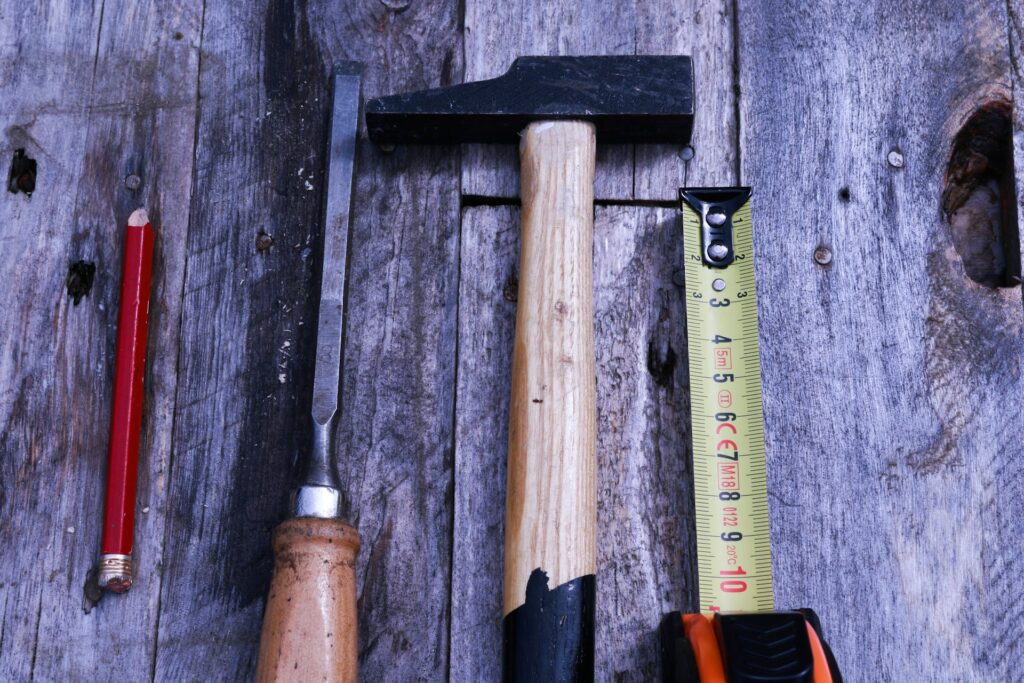
We are reader-supported. When you buy through links on our site, we may earn an affiliate commission.
If you’re addicted to HGTV, you’ve likely felt empowered by the women wielding hammers and chainsaws on your television screen. And why wouldn’t you? It’s a powerful image — so much so you might wonder about the different jobs for women in construction.
Construction has historically been “men’s work,” with the field predominantly occupied by men. However, more women have risen to the challenges of heavy lifting and hard labor, finding the work satisfying and meaningful.
Whether you dream of working in the field, in an office or management, these construction roles bridge gender gaps in a male-dominated field.
Women in Construction on the Rise
According to the Associated Builders and Contractors, the construction industry was down 546,000 workers in 2023, struggling to keep pace with increasing labor demands. One solution is clear: Diversify the field by empowering women to join.
As of 2023, women account for 10.8% of the construction workforce — well below an equal occupational outlook. Those currently in construction roles grapple with unequal pay — women earn $0.07 for every dollar male construction workers make.
Yet, women have the skill capacities and dexterity to succeed in various positions. While progress is slow, it is transpiring — in 2018, it was reported that there was fewer than 1 in twenty female construction workers. However, the number of women in construction trades has risen 53% over the last decade, with 316,000 obtaining work in natural resources, labor and maintenance. Thirty-six percent of women in construction work in management and sales.
The construction sector has a long way to go before achieving gender equality. Yet, amid the dire trends, the industry can no longer ignore the potential for a more diverse and women-oriented workforce.
6 Jobs for Women in Construction
Women can do anything they set their minds to, including any construction jobs often occupied by their male counterparts. From electrical and plumbing to brick-by-brick labor, there are boundless opportunities to find a lifelong, lucrative and fulfilling career. Here are six jobs for women in construction in 2024.

1. Construction Manager
Construction managers maintain expertise in all aspects of building. They oversee the day-to-day construction process, from breaking ground to handing the finished product to the client.
These individuals are responsible for preparing, supervising and approving the execution of the project, giving special attention to detail. Their role requires them to develop the project scope, renderings, changes and risks, ensuring the construction follows the project timeline.
Other things they concentrate on include the following:
- Reporting to the project manager
- Ensuring the team adheres to health and safety protocols
- Defining the project deliverables for the team
- Monitors and recommends improvements for productivity and performance
2. Project Manager
Project manager roles require women with a knack for taking charge. Negotiating tactics, attention to detail, time management skills and analytical thinking are key ingredients for success.
Project managers hire contractors, workers and staff for various responsibilities throughout the project lifecycle. They also obtain the necessary permits and licenses to complete the work and negotiate contracts and pricing with suppliers and vendors.
Alongside the construction manager, project managers ensure the team sticks to the project schedule to meet set deadlines. They must work with various project experts — from architects to engineers — to ensure smooth operations and material deliveries with few delays.
3. Carpenter
Those who enjoy working with their hands will discover carpentry is one of the best jobs for women in construction. Carpenters create frameworks and structures from blueprints and building plans. They accurately measure and cut wood, plastic and other materials for walls, flooring, frames, cabinets and other fixtures.
Carpenters learn the tricks of the trade in apprenticeships, gaining experience using power tools and hand tools, such as nail guns, saws, sanders and welding machines.
While you could end up loving a carpentry career, it is essential to remember the amount of physical stamina required for the job. For instance, you’ll need to put in 25-35 hours of labor when installing kitchen cabinets in a home remodel.

4. Electrician
Electricity makes everything in your life easier. Your ability to turn lights and appliances on and off is all thanks to the talented electricians who install, maintain and repair your electrical work.
Electricians can read technical blueprints and decipher power communications and control systems. They wire and rewire electricity according to standards in the National Electrical Code, identifying issues and finding solutions. They might use thermal scanners, cable testers and voltmeters when troubleshooting electrical problems and deploy various tools to run wiring throughout a home or office.
Electricians can work independently as contractors or collaborate with architects and building engineers on an electrical project. However, electrical work can be dangerous, so electricians must undergo extensive apprenticeships to learn the trade.
5. Plumber
While plumbing can be one of the dirtier jobs, it is commonly misunderstood as a profession with little education. Contrary to this popular belief, plumbers have high level skills in math and physics that allow them to read blueprints and schematics, while also following complex local ordinances and sanitation standards. Like electricians, plumbers have plumbing blueprints they must follow to install, maintain and repair pipes according to building codes and national standards.
Plumbers have expertise using various plumbing materials — copper, steel and plastic, among others — for carrying water, gas and additional substances. Some of their responsibilities also include connecting pipes and testing fluid pressure. For example, if the water pressure in your shower is low, you may need to call a professional plumber to resolve the problem.
After years-long apprenticeships, these experts can work for themselves or join a company. Regardless, you can expect to work weekdays, nights and weekends in this role.

6. Welder
Welding may sound like a more intensive male-dominated construction job, but more women are pursuing this lucrative field. There is also high demand for skilled welders — the American Welding Society expects 300,000 welding job openings in 2024 as more professionals retire. As of now, women make up 5% of the welding workforce.
Gender diversity is critical in the welding sector. Women Who Weld — a nonprofit organization —supports prospective female welders, teaching them the trade through comprehensive training programs and apprenticeships and assisting them in their employment searches.
Welders conjoin metals using machinery. The type of process they use ultimately depends on what metals they combine. In construction, welding ensures the sturdiest and most secure structures.
Any Construction Job Men Can Do Women Can Do Just As Well
Many women are up for the challenge of construction jobs, as demonstrated by the recent increase in female laborers. If you’re considering pursuing a construction trade, you’ll find yourself with several opportunities to build growth and achieve lifelong success.
To learn more about growing your career in construction, subscribe to our newsletter.







